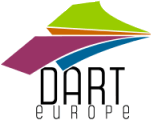Kriska Olivér
A határérzet tényezői a szerb-magyar államhatár mentén.
Doktori értekezés, Szegedi Tudományegyetem (2000-).
(2024)
|
PDF
(disszertáció)
Download (10MB) |
|
|
PDF
(tézisfüzet)
Download (885kB) |
Magyar nyelvű absztrakt
A kutatás célja az, hogy bemutassa a határokkal kapcsolatos gondolkodás és tudományos vizsgálódás fejlődését, valamint az ezen a területen uralkodó trendeket és elméleti kereteket, alkalmazva és bemutatva mindezt a szerb–magyar államhatár mentén húzódó mintaterületen. A hagyományos határkutatás a fizikai államhatárokra helyezte a vizsgálódás fókuszát, míg a posztmodern megközelítés a társadalmi, kulturális és szimbolikus dimenziókat hangsúlyozza, és a határokat változónak, dinamikusnak és konstruáltnak tekinti. A kritikai határkutatások kiegészítik a posztmodern nézeteket azzal, hogy vizsgálják, hogyan jönnek létre és kapnak értelmet a határok a napjainkban és minden hatalmi és egyéb aszimmetriai tényezők mentén alakul mindez. A mentális határok kulcsfontosságú szerepet játszanak, befolyásolva a különböző területiségek és társadalmi csoportok iránti felfogást és viselkedést. A kutatási területet, a szerb–magyar határszakasz mentén a történelmi események, a demográfiai és nemzetiségi összetétel, a gazdasági körülmények, az EU-tagság, a menekültmigráció és a COVID-19 járvány által kialakított egyedi jellemzők és jelentések miatt került kiválasztásra. A kutatás elsődlegesen kvantitatív adatfelvételt alkalmaz, beleértve elsősorban kérdőíves felméréseket és néhány interjút is. Az eredmények jelentős különbségeket mutattak a határhasználati szokásokban, a határhoz kapcsolódó attitűdökben és a mentális határok tekintetében a két oldalon élő magyar anyanyelvű lakosok között. A disszertáció azonosította a határ társadalmi újratermelését meghatározó összetett tényezőket, és kiemelte a helyi nézőpontok és tapasztalatok megértésének fontosságát. A kutatás fő korlátjai, hogy kizárólag magyar anyanyelvű lakosokra koncentrált, és további kvalitatív jellegű módszertanra van szükség a folyamatok további részletes feltárása érdekében. Mindazonáltal a kutatás eredményeivel összefüggő tényezők megértése kulcsfontosságú a határmenti együttműködés, a békés együttélés, a döntéshozatal szempontjából, betekintést adva a határtérségek dinamikájába és a helyi közösségek érdekeibe, életébe.
Absztrakt (kivonat) idegen nyelven
The research aimed to explore the development of thinking and scientific research on state borders, as well as the prevailing trends and theoretical frameworks in this field. The primary focus was on the characteristics and nature of defining factors in the area along the Serbian-Hungarian state border. Traditional border research emphasized physical state borders, while the postmodern approach highlighted their social, cultural, and symbolic dimensions, viewing borders as variable, dynamic, and constructed. Critical border studies complemented the postmodern movement by examining how borders are created and given meaning in contemporary times. Mental borders play a crucial role, influencing perceptions and actions towards different areas and social groups. The research area, the Serbian-Hungarian border section, was chosen due to its unique characteristics and meanings shaped by historical events, economic and demographic, ethnic conditions, EU membership, refugee migration, and the COVID-19 pandemic. The research utilized a mixed-methods approach, including questionnaire surveys and some qualitative interviews. The findings showed significant differences in border use habits, attitudes towards the border, and mental borders between the Hungarian-speaking residents on both sides. The study identified the complex factors shaping the social reproduction of the border in the region, emphasizing the importance of understanding local perspectives and experiences. However, the research had limitations, as it only focused on Hungarian-speaking residents, and further qualitative methodology would be needed for a more comprehensive understanding. Nonetheless, understanding these factors is crucial for cross-border cooperation, peaceful coexistence, and decision-making, offering insights into the dynamics of border areas and the interests of local communities.
| Mű típusa: | Disszertáció (Doktori értekezés) |
|---|---|
| Publikációban használt név: | Kriska Olivér |
| Idegen nyelvű cím: | Factors of Border Perception Along the Serbian-Hungarian State Border |
| Témavezető(k): | Témavezető neve Beosztás, tudományos fokozat, intézmény MTMT szerző azonosító Boros Lajos egyetemi docens, Gazdaság- és Társadalomföldrajz Tanszék SZTE / TTIK / FFI 10001766 |
| Szakterület: | 01. Természettudományok > 01.05. Föld- és kapcsolódó környezettudományok 05. Társadalomtudományok > 05.07. Társadalom- és gazdaságföldrajz |
| Doktori iskola: | Földtudományok Doktori Iskola |
| Tudományterület / tudományág: | Természettudományok > Földtudományok |
| Nyelv: | magyar |
| Védés dátuma: | 2024. január 17. |
| Kulcsszavak: | határérzet, államhatár, szerb-magyar, határ menti élet, mentális határok |
| EPrint azonosító (ID): | 11834 |
| A feltöltés ideje: | 2023. júl. 29. 09:13 |
| Utolsó módosítás: | 2024. ápr. 09. 12:39 |
| Raktári szám: | B 7323 |
| URI: | https://doktori.bibl.u-szeged.hu/id/eprint/11834 |
| Védés állapota: | nem védett (Nem idézhető amíg nem kap DOI számot.) |
Actions (login required)
 |
Tétel nézet |






